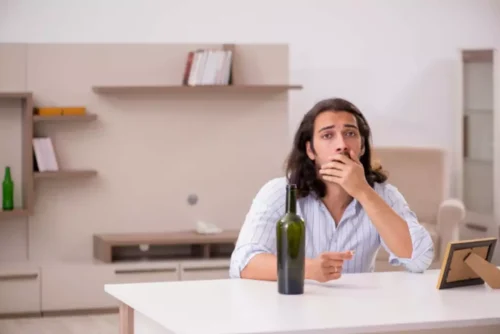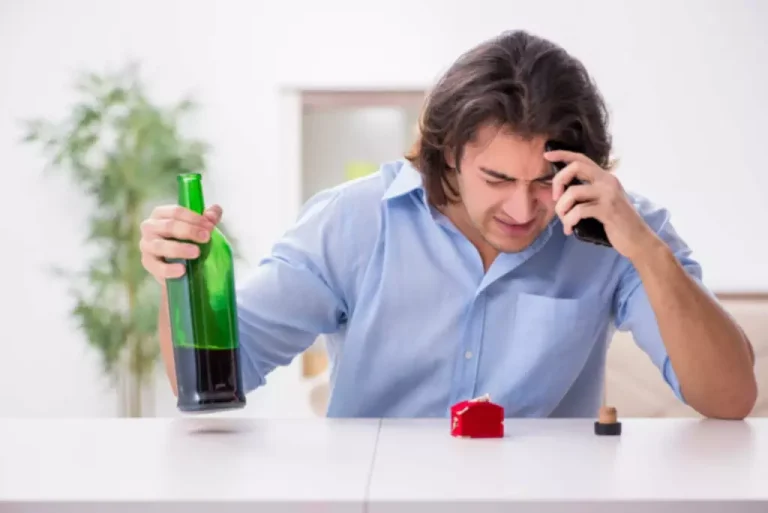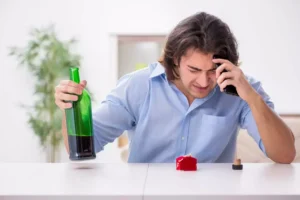
But once you understand them, you can learn how to curb alcohol cravings. Typically, the best source to learn behavioral interventions on how to deal with alcohol cravings is in formal substance use disorder therapy. There are numerous different techniques that can be utilized for different individuals to deal with cravings and reduce the risk of relapse.
- Alcohol abuse and addiction doesn’t just affect the person drinking—it affects their families and loved ones, too.
- «We have to realize that no medication is going to work for everybody, and it’s very important to identify the sub-class of patients for who this medication might work.»
- All the same, “a quick drink” often turns into three or four drinks.
- Distance yourself from people who don’t support your efforts to stop drinking or respect the limits you’ve set.
- Her fields of interest include Japanese translation, cooking, natural sciences, sex positivity, and mental health, along with books, books, and more books.
- But maybe you’re unsure about quitting completely and don’t want to hold yourself to that goal.
Staying Healthy
About 15% of people who join Sunnyside have a plan to eventually quit, and they use moderation with Sunnyside as their starting point. Rigidity can lead to stress, increasing cortisol levels and impairing decision-making. This heightened stress can drive impulsive behaviors like binge drinking or giving up entirely on https://ecosoberhouse.com/article/why-do-alcoholics-crave-sugar-in-recovery/ your goals. This can lead to a vicious cycle, where we feel so badly about ourselves that we need something to either numb the pain or punish ourselves. And what better option than that very thing we feel like we can’t control?
Alcohol Addiction Treatment in Mississippi
They serve as a non-judgmental hub for individuals to express their fears, accomplishments, and setbacks openly, fostering resilience and an optimistic outlook. Self-compassion has become a mental health buzzword for a reason. While it might sound new-age or woo-woo, science is backing up just how important it is for your mental health.

Types of Behavioral Treatments

When seeking professional help, it is important that you feel respected and understood and that you trust the person, group, or organization to help you. However, remember that relationships with health care providers can take time to develop. It is important to gauge whether the facility provides all the currently available, evidence-based methods or relies on one approach.
- If you find it difficult to change your environment on your own, consider reaching out for support.
- Alcohol cravings are a common obstacle for many on the road to recovery, but you don’t have to remain victim to them.
- It is better to accept them as normal and actively treat them through a variety of methods, including possibly taking medication.
- One of the most difficult challenges that many people face during recovery includes experiencing cravings for alcohol.
- Evaluate the coverage in your health insurance plan to determine how much of the costs your insurance will cover and how much you will have to pay.
How medication can help
So instead of worrying about what you’re giving up, think about what you stand to gain — your “why”. Check-in with yourself daily to reflect on your day and what might have motivated you to drink or not. This article on identifying your triggers and learning how to use them to your advantage might help you dive in deeper. An answer that’s truly meaningful to you has the power to change your commitment and stick to your goals, even when it’s not easy. Often, rigid, all-or-nothing goals can set us up for failure, which affects our mental health and future decisions. We often make failure mean something about who we are, as in we’re not good enough, strong enough, or smart enough to follow through.

Fortunately, urges to drink are short-lived, predictable, and controllable. This short activity offers a recognize-avoid-cope approach commonly used in cognitive behavioral therapy, which helps people to change unhelpful thinking patterns and reactions. It also provides worksheets to help you uncover the nature of your urges to drink and to make a plan for handling them.

They can come out of nowhere, making it feel almost impossible to resist the urge to drink. However, dealing with alcohol cravings is a crucial part of the sobriety journey. Learning how to manage them effectively will help you stay on track and avoid relapsing. There are several prescription medications that are shown to reduce alcohol cravings, helping people reduce or quit drinking. A person can speak with a mental health professional to better understand their alcohol cravings. They can also seek medical support if they believe they may have alcohol use disorder.
When not drinking, you might begin to notice feelings of anxiety or other emotional distress, along with strong cravings for alcohol. Experiencing alcohol cravings may not automatically mean you have an how to reduce alcohol cravings AUD. All the same, it could be worth talking to a mental health professional — more on that below. Remember, cravings are temporary, and with the right strategies in place, you can overcome them.
